Sutherland relishing life with Movistar
Australian fitting into Spanish team after early season collarbone break
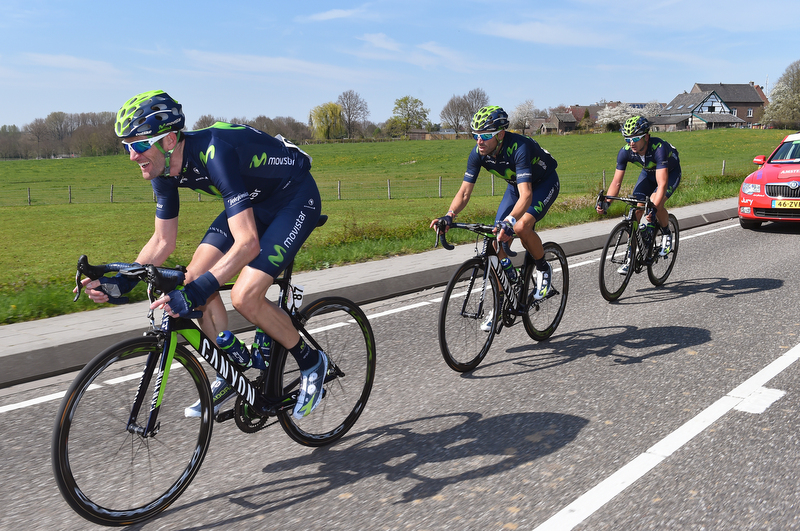
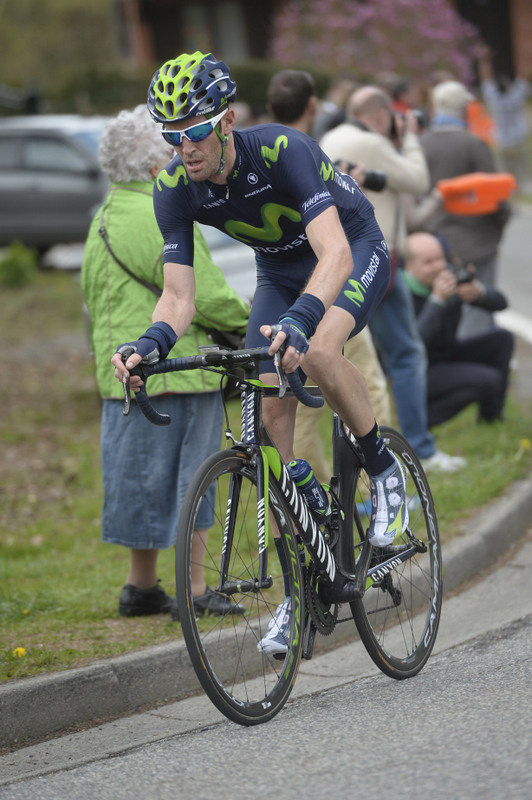
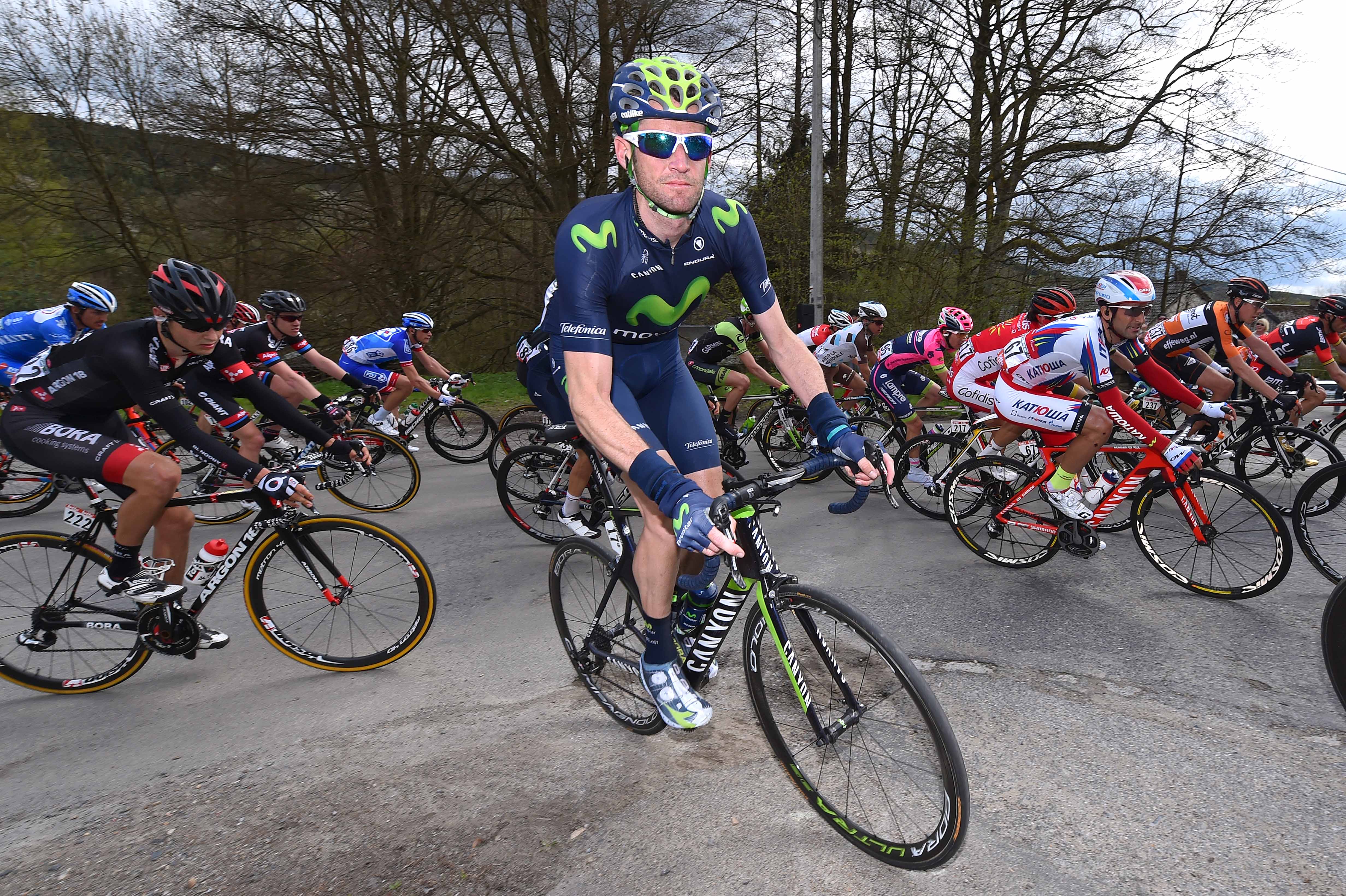
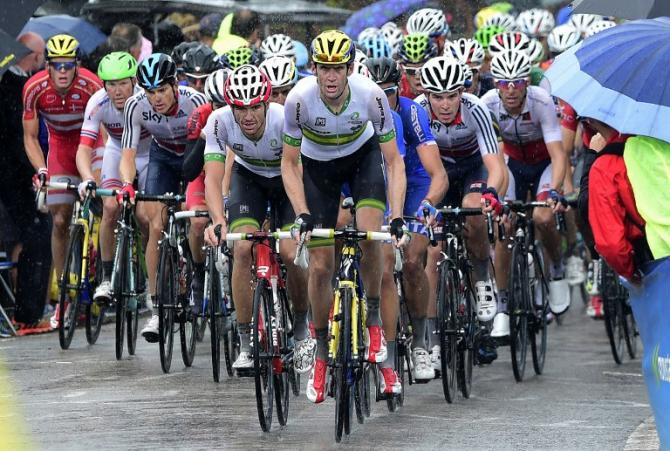
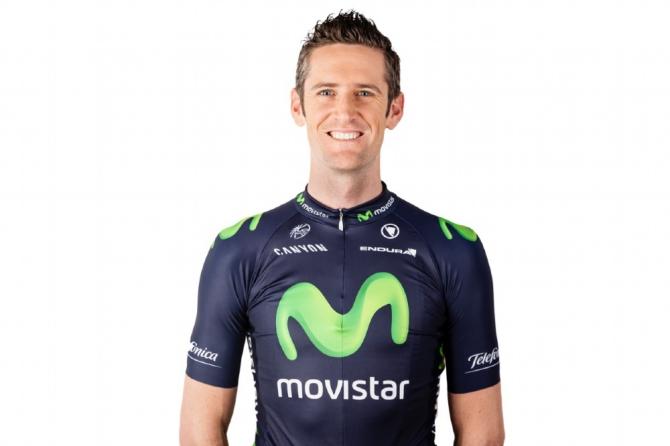
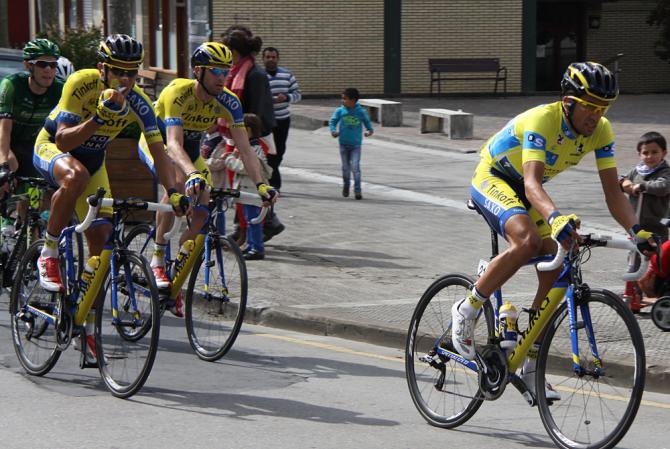
Rory Sutherland is standing alone dressed in a matador's costume and in what little Spanish he can master about to address 70 people, most of whom he doesn't know.
It is last November, near Pamplona in Spain. The occasion is a dinner of Movistar team riders, staff and sponsors early in their first camp before the 2015 season.
Sutherland, 33 and from Canberra, Australia, is a new face in the Eusebio Unzue managed Spanish World Tour team that began 35 years ago as Reynolds until Banesto took over sponsorship, and then Illes Balears, Caisse d'Epargne and Movistar in 2011.
With Briton Alex Dowsett, Sutherland is the only Anglo-Saxon on Movistar, having previously ridden for Rabobank, Health Net-Maxxis and Tinkoff-Saxo. As befits his new team's tradition for welcoming newcomers, he has also been asked to attend the dinner in a dress code refecting the team's Spanish heritage.
"I had only learned a little bit of Spanish and had to stand before 70 people and give a speech dressed as a matador. I nearly 'shit' my pants. I made mistakes, but everyone appreciated the effort. That is part of the team, why it works really well," Sutherland told Cyclingnews with a laugh as he recalled the moment. Sutherland was speaking before he raced in last Sunday's Liege-Bastogne- Liege classic after which he left for the Tour de Romandie that starts on Tuesday.
He admitted that he still has some way to master the Spanish language, but said with another laugh: "I'm getting there." He then explained: "Spanish is the language on the table. It's my responsibility to make sure I put myself in the position to learn more." However, Sutherland believes that his efforts to fit in to the team that he says is historically "closed" for non-Spanish speakers are starting to pay dividends; and all in season that began with him sustaining a broken collar bone in a crash at the Majorca Challenge in February that required surgery.
Fitting in to a Spanish team …
Sutherland, who for the last two years has lived at Girona in Spain, was signed up by Movistar to help Spaniard Alejandro Valverde who in the last week alone has won La Flèche Wallonne and Liège-Bastogne-Liège, and Colombian Nairo Quintana. “It is an incredibly closed team," he said.
Get The Leadout Newsletter
The latest race content, interviews, features, reviews and expert buying guides, direct to your inbox!
"See how many Spanish and Spanish speakers are in [it] … but it's their way and mentality and very tough for foreigners come in and be part of the group. That has been on the biggest challenges – the communication and being a part of that family, but we are slowly getting there. That's on me though …"
Sutherland believes key to Movistar's sense of "family" is their balance between knowing how to lighten the mood out of the race and to switch on in a race.
He recalled how at that team dinner last November: "The two guys who were laughing the most and throwing parts of bread rolls" were Valverde and Quintana. Although, he adds that Italian Giovanni Visconti is also among the team's "biggest pranksters."
However, what Sutherland quickly saw was at Movistar was that: "A neo pro can sit with the guy who makes a couple of million Euros a year. There is a hierarchy in the race but outside it everybody is the same. Everyone has respect for each other."
For Sutherland, whose grand tour experience amounts to two finishes in the Giro d'Italia, his focus is to try and hit his peak form in time for the Tour, and then the goal will be to hold it for the second half of the year, including the Vuelta a España which he also been pencilled in to race.
Luckily, Sutherland's collar bone break has had a minimal impact on his program. The only races he missed were the Tour of Qatar and the Tour of Oman.
"A collar bone [break] is pretty standard in cycling … a quick healer if it's a standard break," Sutherland said. "[It would be] have an operation, plate it, and you're back on the rollers in a couple of days. A week and a half later you can put your arm above your head."
But Sutherland realised his break was far from “standard" after visiting doctors in Girona and that a "longer path to get back" was would be on the cards.
While it helped knowing that "my goals are mid-to-late year anyway" and that the team would not pressure him to fast track a comeback, Sutherland conceded his spell out still took away race time that he would need to get to know Valverde as well as possible.
"That slowed but it was also an opportunity to see a real side of the team about how they approach [the situation when an] athlete had an injury," he said. "There are plenty of riders with broken bones. But [Movistar] approached it in a more realistic and intelligent way … where the most important thing was to make sure an operation is done properly, the right way, so down the track there are no problems."
Sutherland has seen riders pressured to comeback to racing before they are ready.
"It is still happening," Sutherland said. "Guys start pushing themselves a bit too hard … or come back too early and you end up fighting yourself for the rest of the year."
With the Ardennes classics behind, Sutherland is excited about the prospects of working for Valverde and Quintana, starting at the Tour de Romandie.
Sutherland has no illusion about what his strengths are and what role he will have.
"I am good at positioning and because I am a big guy I have strength for that," he said. "I have been around long enough to know my strengths don't lie in the finale. I am completely happy to do my job for someone else and help them."
The Movistar 'stars' – on and Quintana
Sutherland says the role of everyone on Movistar is clear, especially for the Tour – including Quintana, who will be the Spanish team's leader, and Valverde.
"When they sat down and decided what they are going to do with the guys in direction for the Tour and considering what the 'parcours' is like – obviously with less time trial kilometres – it suited Nairo pretty well," Sutherland said.
"Nairo is the guy for the Tour. There's no doubt about that. In getting to know Alejandro and the guys, there's no confusion. You have someone like Alejandro who is incredibly professional. He can provide help to Nairo that other teams won't be able to."
Which brings one to ask Sutherland what is Valverde really like? How can he – at age 35 – be so consistently strong in races – and what really motivates him?
"He just loves cycling. He loves riding his bike and racing his bike," said Sutherland. “It is similar to Alberto [Contador] in the last two years. I have never seen anyone as determined about racing and riding their bike as Alberto, and Alejandro does it in a different way.
"He is more of a joker and loves to mess about when training.
"He is one of the oldest in the team, but one of the youngest in some sense because he loves messing around. Outside the race everyone has fun and is relaxed. There is a family feeling. In the race, it becomes more serious, but never over the top. When moments [to win big races] come, Alejandro is ready to go and you see what happens in the finale."
Asked if Valeverde is driven by a sense of anger to avenge his two year ban in 2010 for doping, Sutherland said: "I don't believe so. I don't think you can be like that. The results are so consistent. We're talking from January in Majorca to the Worlds at end of September.
"All the avenging stuff … I'm not going to delve into it. I don't know what he believes was right or wasn't right … The guy just loves racing his bike."
Rupert Guinness is a sports writer for The Sydney Morning Herald (Fairfax Media)
Rupert Guinness first wrote on cycling at the 1984 Victorian road titles in Australia from the finish line on a blustery and cold hilltop with a few dozen supporters. But since 1987, he has covered 26 Tours de France, as well as numerous editions of the Giro d'Italia, Vuelta a Espana, classics, world track and road titles and other races around the world, plus four Olympic Games (1992, 2000, 2008, 2012). He lived in Belgium and France from 1987 to 1995 writing for Winning Magazine and VeloNews, but now lives in Sydney as a sports writer for The Sydney Morning Herald (Fairfax Media) and contributor to Cyclingnews and select publications.
An author of 13 books, most of them on cycling, he can be seen in a Hawaiian shirt enjoying a drop of French rosé between competing in Ironman triathlons.